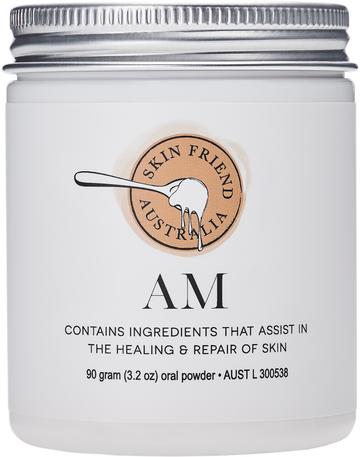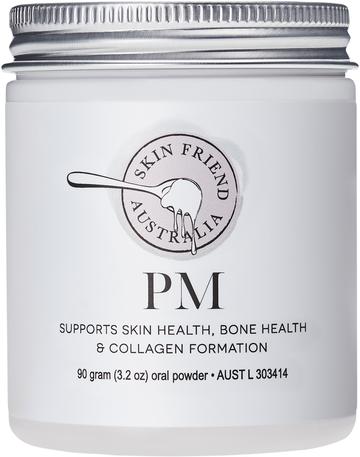Is leaky gut the main cause of eczema?

Is leaky gut the main cause of eczema?
I'm asked this question a lot. And it's not just because leaky gut is trendy right now. People want answers to why they have eczema, and they want a simple solution.
I wish it were possible reduce eczema to ‘one cause’ such as leaky gut but eczema is more complex than that. Some people do have eczema and leaky gut (also know as ‘increased intestinal permeability’) and as a result they experience a range of unpleasant gut symptoms. And I've also worked with hundreds of eczema patients who have no adverse gut symptoms - their main trigger was chemical sensitivity triggered by poor detoxification of chemicals (a liver issue).
For those who suspect they have leaky gut, we would love to offer some help and advice via this blog.
How do you know if you have leaky gut?
While not everyone has the same symptoms, you may have a combination of the following symptoms:
Note: not everyone will have all of these symptoms, and symptoms may come and go
What causes leaky gut?
- Coeliac disease
- Food allergies and intolerances (eating foods you are allergic to)
- Salicylate sensitivity (any chemical sensitivity)
- infections of the intestines including giardiasis and salmonella
- Kidney disease
- Cystic fibrosis
- Type 1 diabetes
- Sepsis (blood poisoning/infection of the blood)
- Crohn's disease
- And some medical drugs including:
- Frequent aspirin use (salicylate-based medication)
- Non-steroidal anti-inflammatory drugs
- ibuprofen
- chemotherapy medicines
Is leaky gut the same as dysbiosis?
No. Don't confuse leaky gut with 'dysbiosis'. Gut dysbiosis is associated with gut flora (microbe) imbalances which can occur in the digestive tract. On the other hand, leaky gut is physical damage to the gut lining, not a gut flora problem, and it can be detected by a gut biopsy and blood test. It's easy to see how the confusion can occur as they are both in the digestive tract.
Is there any research that ‘leaky gut causes eczema’?
There is a research study conducted on 26 children with eczema which concluded that 14 of the participants had leaky gut and eczema.1 The researchers said that leaky gut was likely caused by food intolerances so elimination diets were undertaken by many of the participants.
So is the real problem undiagnosed food intolerances?
Often it is. Sometimes it's not - remember eczema is not cause by one single issue, it can be different for some individuals.
Is the data strong enough on leaky gut and eczema?
The research is emerging. In comparison, there are more than twenty research papers showing how leaky gut is strongly associated with dermatitis herpetiformis and Coeliac disease.1,2,3,4,5
Dermatitis herpetiformis is not eczema, it's a chronic blistering of the skin, triggered by gluten intolerance and people with Coeliac disease often get it.
One study on eczema found that leaky gut was not associated with eczema.5 In the study, British researchers compared the gut permeability of children with eczema, with children who were healthy (eczema-free). They concluded there was no significant difference in gut health between the two groups.
What about anecdotal evidence? (word-of-mouth stories)
Anecdotally, some eczema sufferers do have leaky gut. And they suffer greatly.
This is true for about 12% of my eczema patients who have both leaky gut and eczema. They also had undiagnosed food intolerances that became apparent once they did an elimination diet. After their elimination diet their skin vastly improved and when they avoided their trigger foods their gut symptoms also improved.
Food intolerances can trigger leaky gut - that is the missing link - and it can lead to eczema in some cases. For these patients I prescribe Skin Friend AM which contains nutrients that repair leaky gut.
Can you test for leaky gut?
Yes. Ask your doctor for a test to check for 'Increased intestinal permeability'.
Begin with the blood test, then if abnormalities show up you can have a gut biopsy next as it is the best way to diagnose leaky gut.
If you have leaky gut and eczema, is it a good idea to rely on topical drugs?
I work with hundreds of patients, many are in pain and depressed, some worse, so I am not against them using topical drugs on occasion. The problem is when you rely on these creams and fail to address the underlying cause of the eczema - this can lead to atopic march where asthma and hay fever develop. The creams send the inflammation inward and the problem changes form.
How do you address the internal causes of eczema?
With a healthy diet and gut repairing supplements.
Remember leaky gut is not a gut flora imbalance so it's not going to be healed by probiotics which are bacteria-based (that is for a separate issue). For leaky gut you need nutrients that repair the gut lining and protect it from injury. This is why The Eczema Diet and Eczema Detox programs have such an amazing success rate.
The Eczema Diet and Detox contains gut healing recipes including a low salicylate broth and other recipes that are gentle on the gut and good for your skin. As more than 52% of eczema sufferers get eczema when they consume salicylate rich foods, the low salicylate recipes are vital to speed up the relief (watch the 7 News eczema diet story here).
So let's treat eczema holistically from the inside out, and get to the root of the problem.
Are you one of the people who have eczema and painful gut issues? If so, let us know in the comments section, below.
Products
At Eczema Life, we recommend nutritionist Karen Fischer's low food chemical program (The Eczema Detox) along with additive-free supplements for skin health and wellbeing. Click on the images to view more details:
Supporting research
1. Pike, M.G., et.al., 1986. Increased intestinal permeability in atopic eczema. Journal of Investigative Dermatology, 86(2), pp.101-104.
2. Bjarnason, I., et.al., 1985. Intestinal permeability in patients with coeliac disease and dermatitis herpetiformis. Gut, 26(11), pp.1214-1219.
3. Sachs, J.A., et.al., 1986. Different HLA associated gene combinations contribute to susceptibility for coeliac disease and dermatitis herpetiformis. Gut, 27(5), pp.515-520.
4. Gillberg, R., Kastrup, W., Mobacken, H., Stockbruugger, R. and Arhren, C., 1985. Gastric morphology and function in dermatitis herpetiformis and in coeliac disease. Scandinavian journal of gastroenterology, 20(2), pp.133-140.
5. Mont, G.D., Beach, R.C. and Menzies, I.S., 1984. Gastrointestinal permeability in food‐allergic eczematous children. Clinical & Experimental Allergy, 14(1), pp.55-59.
6. Caffarelli, C., Cavagni, G., Menzies, I.S., Bertolini, P. and Atherton, D.J., 1993. Elimination diet and intestinal permeability in atopic eczema: a preliminary study. Clinical & Experimental Allergy, 23(1), pp.28-31.
7. Farhadi, A., et.al., 2008. Susceptibility to gut leakiness: a possible mechanism for endotoxaemia in non‐alcoholic steatohepatitis. Liver International, 28(7), pp.1026-1033.





